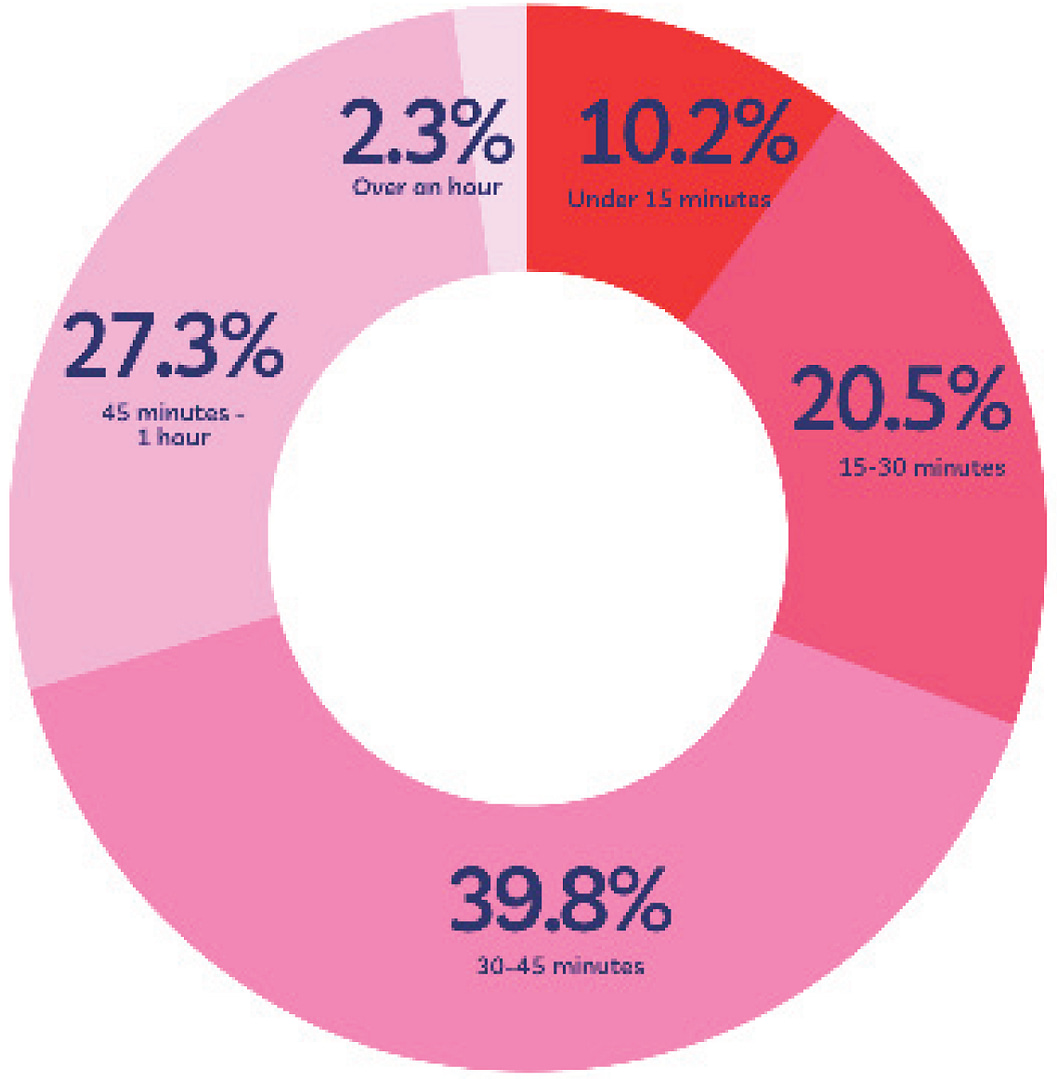As Congress moves on from the impeachment charade and begins focusing on the people’s business, proposals to raise the federal minimum wage from $7.25/hr to $15/hr are gaining traction among progressives and some populist conservatives. However, raising the minimum wage will harm small businesses and accelerate the growth of multinational corporations like Amazon that facilitate the collapse of the American family.
Much of the rhetoric on the Right about raising the minimum wage has originated from free-market fundamentalism. While some of these critiques may be well-intentioned and correct, they miss the point.
The main talking point from conservatives over the years has been that a higher minimum wage would kill jobs and facilitate automation. These critiques are well-founded. The economic literature has, for decades, maintained that a higher minimum wage would hurt jobs. In fact, a 2019 report by the Congressional Budget Office estimated 1.3 million workers would become jobless and estimated the worst possible job loss was 3.7 million.
However, the focus on the sheer number of jobs lost because of a minimum wage increase ignores the other more pressing issues with a higher minimum wage: the increased power of multinational corporations and the collapse of the American family.
On their own website, Amazon states employees will receive a “starting pay of at least $15 per hour.” Thus, Amazon does not care if the minimum wage goes up because it already satisfies a $15 minimum wage. Many on the Left claim that Amazon will suffer in the event of a high minimum wage due to Amazon’s loss of labor to its competitors. However, practically speaking, Amazon and other multinational corporations will continue to thrive regardless, as a higher minimum wage would destroy Main Street U.S.A. from the inside and further enable Amazon’s monopolistic pursuits.
Small businesses have been utterly decimated because of stringent lockdowns, causing three out of every 10 small businesses to fear shutting down in 2021, according to a recent survey conducted by the Federal Reserve. This is on top of the nearly 98,000 businesses which permanently shut their doors in 2020 according to Yelp’s September 2020 Local Economic Impact Report. At this rate, the large multinational corporations like Amazon, Google, Facebook, etc., would continue to gobble up small businesses and expand their control over the American economy while Main Street U.S.A. withers away.
Raising the minimum wage is a gift to big business and creates a business environment that views its workers as interchangeable parts on a machine. The expansion of big business and demise of small business would signal a shift in the American business culture. Big companies like Amazon prioritize profits and worker productivity above all else whereas small businesses generally are more connected to the community and make an impact in the local community. Big business can allow the workers to be milked for money until they burn out and then can be replaced with younger workers.
This destructive mentality feeds into a society where workers value their careers above all else—including opportunities to have a family. Society is already experiencing these consequences. In 2018, economist Lyman Stone warned in The New York Times that “the gap between the number of children that women say they want to have (2.7) and the number of children they will probably actually have (1.8) has risen to the highest level in 40 years.”
Furthermore, the birth rate in the United States has been consistently declining for the past few years. 2019 marked the fewest babies born in the United States in nearly three decades. If the birth rate is declining, especially below the replacement rate, then the society will decline in size over time.
As Saagar Enjeti pointed out on his show Rising, “People want more kids but clearly they aren’t having them. Well, clearly, it’s too hard to have kids. What’s the barrier to kids in our culture? It’s money.”
How does the United States move towards a society that makes it easier to have children? While the progressive Left and the populist Right seem committed to a minimum wage hike, there are other methods to help workers and their families without incurring the loss of jobs and human capital associated with a minimum wage hike.
The rest of the world is providing some potential options. With declining birth rates, countries are presented with the opportunity to pursue policies of mass immigration or promote the family as an institution. Hungary’s Prime Minister Viktor Orbán has led his country on a path that promoted pro-family policies over mass migration. The government has enacted policies that made couples eligible for loans that are forgiven after a period of time. The results have been surprisingly successful thus far. The Hungarian Family Minister Katalin Novák reported the Hungarian birth rate has risen by five percent since the enactment of these policies.
The family, especially the nuclear family, is worth conserving. However, there is a lack of policy proposals among conservatives that seek to preserve and defend the nuclear family while maintaining governmental fiscal responsibility..
For all his swamp-flaws, Senator Mitt Romney (R-UT) has at least been proposing actions to remedy childhood poverty by proposing legislation that establishes a monthly allowance system that allocates different amounts of money for children of different ages. Senator Romney’s proposal seems akin to a universal basic income, a policy I do not support because of the cost associated with the proposal and the potential inflation associated with the program; however, Senator Romney’s mere intentions are important. Conservatives need to recognize that endorsing a more economically populist and socially conservative platform is a recipe for electoral success. While Senator Romney’s policy may not be a perfect solution in the same way a minimum wage hike is not a perfect solution, these policies are forcing the conversation in the right direction.
Conservatives need to propose their own policies that provide alternatives to progressive policies. Allowing the Left to steamroll a $15/hr minimum wage into law will be a disaster for small business owners and a gift to multinational corporations. Wake up, now is the time to get creative and find solutions that prioritize the family and provide workers with the financial flexibility to have a family.







Comments are closed.